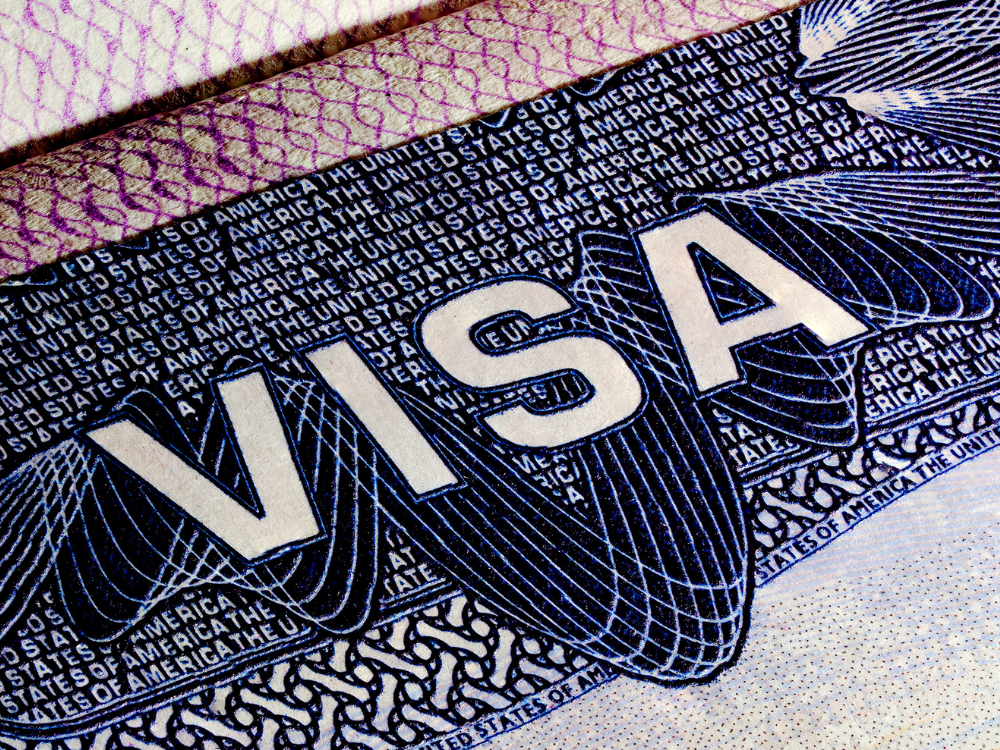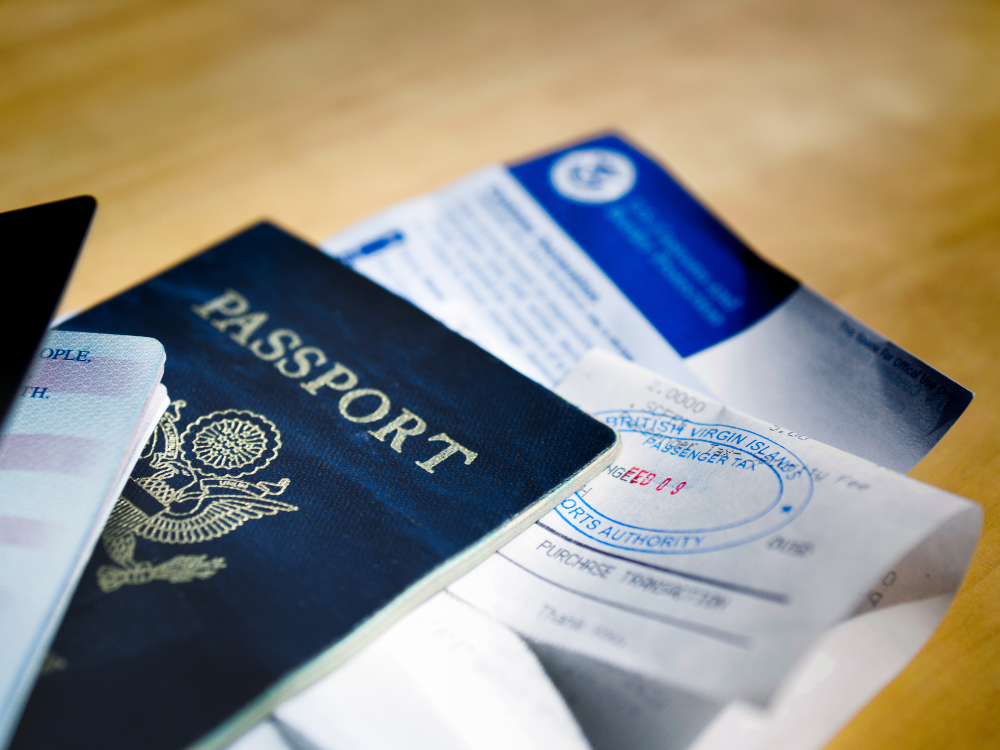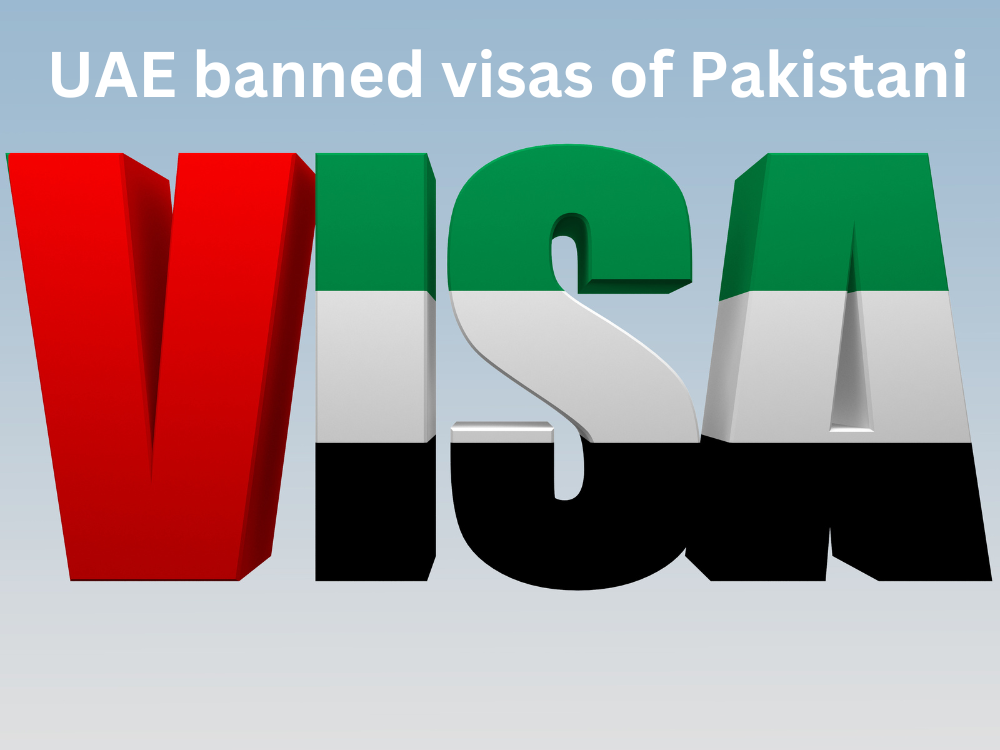Introduction:
In a shocking turn of events, the United Arab Emirates (UAE) has recently imposed a ban on issuing visas to Pakistani citizens. This sudden decision has sent shockwaves through both nations and sparked concerns about its impact on individuals, businesses, and bilateral relations. As we delve into this complex issue, let’s explore the reasons behind this visa ban, its consequences for Pakistani nationals residing or intending to visit the UAE, and possible alternatives that can alleviate the situation. Join us as we uncover the details surrounding this development and seek potential solutions for lifting this unprecedented restriction. In this blog we will discuss about UAE banned visas of Pakistani.

Reasons behind the ban
The recent ban on visas for Pakistani citizens by the UAE has raised eyebrows and left many wondering about the reasons behind this decision. While no official statement has been released, several factors might have contributed to this move.
One possible reason could be security concerns. The UAE government may have received intelligence reports or identified potential threats from individuals with Pakistani nationality. In today’s world, where global security is a top priority, countries often take proactive measures to safeguard their interests.
Another factor could be economic considerations. The UAE might have noticed an influx of Pakistani workers in various sectors, leading to increased competition for jobs among its citizens. In such cases, governments sometimes impose restrictions on foreign nationals to prioritize employment opportunities for their people.
Additionally, diplomatic tensions between the two countries cannot be overlooked. Bilateral relations can influence visa policies and decisions made by governments. If there are unresolved issues or strained ties between Pakistan and the UAE, it could impact visa regulations as a way of expressing discontent or exerting pressure.
It is important to note that these are just speculative reasons and without an official statement from either government, we can only speculate about the true motivations behind this ban. Both nations must engage in open dialogue and find mutually beneficial solutions that address any underlying concerns while maintaining strong diplomatic ties.
In conclusion (not concluding), understanding the reasons behind this visa ban requires careful analysis of various factors like security concerns, economic considerations, and diplomatic tensions. Only through transparent communication can both countries work towards resolving any issues and restoring normalcy in visa policies.

Impact on Pakistani citizens and businesses in the UAE
The recent visa ban imposed by the UAE on Pakistanis has had a significant impact on both individuals and businesses from Pakistan residing or operating in the country. Pakistani citizens who were planning to visit their families, pursue education, or seek employment opportunities in the UAE have been left disappointed and uncertain about their futures.
For many Pakistanis working in various sectors such as construction, hospitality, healthcare, and finance in the UAE, this visa ban has created uncertainty and fear of losing their jobs. It has also affected Pakistani-owned businesses that rely heavily on skilled Pakistani workers for their operations.
The ban not only affects those currently living and working in the UAE but also hampers future prospects for other Pakistanis looking to migrate for better opportunities. Many aspiring entrepreneurs who had plans to set up businesses or invest in Dubai’s booming market are now facing roadblocks due to this sudden restriction.
In addition to these challenges faced by individuals and businesses, there is also a social impact as families are separated due to travel restrictions. Many expatriate families are now unable to reunite with loved ones back home during important occasions like weddings or family emergencies.
This visa ban has caused distress among Pakistani citizens living in the UAE while hindering economic growth between both countries. The need for dialogue between governments is crucial to finding a resolution that benefits both nations while considering security concerns raised by the Emirates.
Response from the Pakistani government
The Pakistani government has expressed deep concern over the UAE’s visa ban on its citizens. They have called it a unilateral decision that negatively affects bilateral relations between the two countries. The Pakistani authorities are actively engaged in diplomatic discussions with their Emirati counterparts to address this issue.
The government has emphasized the importance of preserving strong ties and open channels of communication for both nations. Pakistan values its relationship with the UAE, which is built on mutual respect and cooperation in various sectors such as trade, investment, and labor.
Efforts are being made to find a resolution that benefits both parties involved. The Pakistani government aims to ensure that its citizens’ rights are protected while also addressing any concerns raised by the UAE regarding immigration issues.
Furthermore, the government is exploring alternative options for Pakistani nationals who wish to travel or work in the Gulf region. This includes seeking opportunities in other countries within close proximity where visas may be more accessible.
The response from the Pakistani government highlights their commitment to resolving this matter through peaceful negotiations and dialogue. They strive for an outcome that upholds dignity for all individuals affected by this visa ban while maintaining strong diplomatic relations between Pakistan and UAE.

Alternatives for Pakistanis wanting to visit or work in the UAE
For Pakistani citizens who had their hopes set on visiting or working in the UAE, the recent visa ban may have come as a disappointment. However, it’s important to remember that there are still alternatives available for those who wish to explore opportunities in the Emirates.
One option is to consider other countries that have similar job markets and employment opportunities. Countries like Saudi Arabia and Qatar, for example, offer attractive options for skilled professionals from Pakistan. These countries often have a high demand for workers in various sectors such as engineering, healthcare, construction, and hospitality.
Another alternative could be exploring educational opportunities in the UAE. Many universities and educational institutions in Dubai and Abu Dhabi attract students from all over the world including Pakistan. By enrolling in a degree program or pursuing higher studies at these institutions, individuals can gain exposure to the business environment of the UAE.
Furthermore, it may also be worth considering networking with individuals already established in the UAE. Connecting with friends or relatives who are residents can provide valuable insights into potential job openings or even sponsorship opportunities.
Keeping an eye on any updates regarding changes to visa policies between Pakistan and UAE is crucial. Diplomatic relations play an essential role when it comes to revising visa regulations. It’s possible that discussions between both governments could lead to lifting or modifying this ban in due course.
While these alternatives may not entirely replace one’s aspirations of visiting or working specifically in the UAE right now, they do provide viable options worth exploring during this time of uncertainty surrounding visas for Pakistani nationals.
Possible solutions to lift the ban
1. Diplomatic negotiations: The Pakistani government should engage in diplomatic talks with UAE authorities to understand the reasons behind the visa ban and address any concerns they may have. By fostering open communication and finding common ground, it is possible to work towards a resolution that benefits both countries.
2. Enhanced security measures: Pakistan can demonstrate its commitment to improving security protocols by implementing stricter screening procedures for individuals applying for visas or employment in the UAE. This could help alleviate any apprehensions regarding potential threats.
3. Bilateral agreements: Both countries can explore the possibility of signing bilateral agreements that outline specific terms and conditions for issuing visas. Such agreements would provide clarity and transparency, ensuring a smoother process for Pakistani citizens seeking entry into the UAE.
4. Cultural exchange programs: Promoting cultural exchange programs between Pakistan and the UAE can foster greater understanding and trust between both nations. These initiatives encourage people-to-people connections, which may positively influence perceptions about Pakistanis living or working in the UAE.
5.Improved documentation processes: Strengthening documentation processes on both ends could help streamline visa applications. Ensuring all necessary documents submit accurately and efficiently, reduces room for error or delays that could contribute to strained relations.
6. Training programs: Collaboration between Pakistani institutions and those in the UAE can facilitate specialized training programs that enhance skills sought after by employers in various industries within the Emirates.
7. Economic partnerships: Exploring economic partnerships between Pakistan and Dubai’s free zones could create opportunities for investment, job creation, and increased trade ties – leading to improved bilateral relations overall.
Both nations must approach this situation with an open mind, willingness to find common ground, emphasize mutual respect, and resolve misunderstandings promptly while protecting national interests – ultimately paving the way towards lifting this unfortunate visa ban!

Conclusion: The importance of diplomatic relations between countries for visa policies
In light of the UAE’s recent visa ban on Pakistani citizens, it is evident that diplomatic relations between countries play a crucial role in shaping visa policies. The decision to impose such bans can have far-reaching consequences not only for individuals and businesses but also for the overall relationship between nations.
While the reasons behind the UAE’s visa ban on Pakistanis may be present in security concerns and immigration issues, both countries need to engage in open dialogue and find amicable solutions. Maintaining strong diplomatic ties allows for a better understanding of each other’s needs and concerns, leading to more favorable outcomes when it comes to visa regulations.
It is important to recognize that this ban has had a significant impact on Pakistani citizens who wish to visit or work in the UAE. Many individuals rely on opportunities abroad for employment prospects or personal growth, and restrictions like these limit their options and chances of success. Moreover, businesses with connections between Pakistan and the UAE may face challenges due to limited mobility of employees or partners.
The response from the Pakistani government should focus on addressing any underlying issues that led to this ban while seeking ways to strengthen bilateral relations with the UAE. By proactively working towards resolving concerns raised by their counterparts, they can pave the way for improved cooperation and potential lifting of such bans.
The recent visa ban imposed by the UAE on Pakistani citizens underscores how vital diplomatic relations are when formulating visa policies between nations. While there may be genuine concerns behind such decisions, countries must maintain open lines





